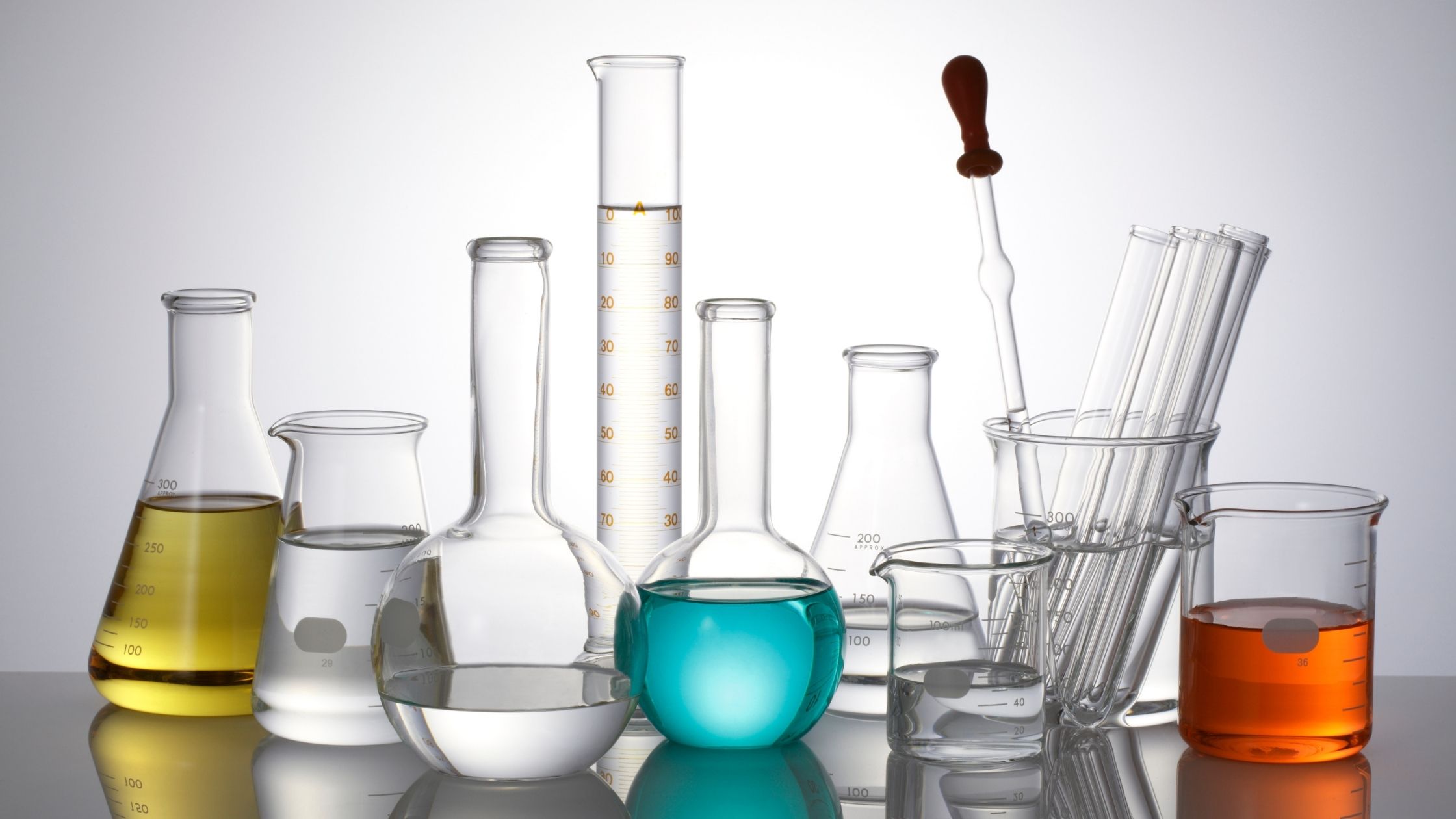Glassware In Laboratory

Glassware In Laboratory
Laboratory glassware is used for an assortment of laboratory analyses. Depending on the task at hand, it may require either mass-produced pieces or those custom-crafted by glass blowers. Glassware in laboratory must be easily accessible for experimentation and inventory management by lab staff during experiments and temperature fluctuations, yet be able to withstand caustic chemicals and high temperatures without becoming obscured or worn away over time. Labels and markings on glassware must also remain legible under extreme chemical and temperature exposures.
There are some top Glassware used in Laboratory:
- Flasks
- Cylinder
- Tubes
- Beakers
- Funnels
- Bottles
- Condensers
- Glassco Laboratory Equipments Pvt. Ltd
- Pipettes
- Burettes
- Petri dishes
- Stirring rods
- Basic glassware
- Burette
- Pipette
- Round bottom flask
- Beaker
- Sigma Scientific Glass Pvt. Ltd. – Glass Reactors
- Corning
- Desiccators
- Slides
How many laboratory apparatus are there
Laboratory glassware comes in various shapes, sizes, and types – some designed specifically to fulfill one purpose while others serving multiple uses simultaneously. Beakers, flasks, test tubes and graduated cylinders are common laboratory glasses used to hold and contain chemicals; graduated cylinders and glass pipettes provide precise liquid handling; while Schlenk flasks used in column chromatography require graduated cylinders and glass pipettes as essential tools; stopcocks are useful devices used to connect or disconnect tubing within Schlenk flasks or other glassware, often found as part of burettes or separatory funnels.
Location and symbology are critical considerations when labeling or marking laboratory glassware for scanning, reading, and inventory management purposes. Achieve optimal scanning speeds requires taking into account hardware/software requirements as well as workflow/process requirements before selecting your label/mark symbology/location combination.
Beakers are among the most frequently used pieces of laboratory glassware. Their flat bottoms make them easy to set on lab benches or hot plates, with their built-in spout enabling easy pouring solutions into them. Other popular pieces include watch glasses which have graduated calibrations that enable accurate storage.
laboratory equipment manufacturers in india
Laboratory glassware comes in various shapes, sizes and materials and is used in many laboratory experiments and procedures for storage or transfer of liquids, gases, solids or solutions. It also serves to heat or cool objects efficiently while being resistant to many different chemicals; its clear surface allows easy observation and monitoring as well as cleaning with high intensity disinfectants easily. Common examples of laboratory glassware include Florence flasks, Liebig condensers (useful for distillation setups), receptacles with ground glass lids for chemical storage purposes and burettes (used to dispense exact amounts of liquid).
Laboratory glassware must be handled carefully to ensure optimal performance and safety. Any scratches or chips can contaminate samples, leading to calculations errors. Store it in an area away from direct heat sources like hotplates or Bunsen flames, and wash before and after every use. if the glassware becomes contaminated with chemical or biological matter, it should be thoroughly decontaminated by repeatedly rinsing with warm water, soaking in decontaminating solution or chemical sterilizing it before being kept dry with a drying pistol or desiccator. When performing volumetric measurements it is also wise to select borosilicate lab glassware which has more resistance against acids than other types.
laboratory glassware manufacturer
Laboratory glassware manufacturers produce laboratory equipment like beakers, bottles, flasks and funnels made of high-grade materials such as borosilicate or quartz glass to withstand harsh environments while still having high chemical resistance; commonly used in chemistry, biology and other scientific experiments as well as being customized specifically to each experiment or use case.
Glassware can be customized into laboratory products using lasers or other cutting and drilling methods to etch or drill designs into its surface, adding text labels or text on containers with these methods, or by melting and shaping to produce complex forms or sizes. Manufacturers have access to laser cutting equipment which engraves and drills patterns into the glassware for engravings that make custom laboratory products.
DWK Life Sciences provides an expansive selection of laboratory glassware, such as beakers, round-bottom and cylinder flasks, jars, insulating tubes, rotary evaporators and centrifuge tubes. Their lab supplies are crafted from 33-expansion borosilicate glass and soda lime and boast durable transparent construction with precise measurements that deliver reliable performance; plus their products can easily be cleaned and maintained to provide accurate measurements, precise performance measurements and reliable performance over time. Laboratory glassware can also be used for measuring volume measurements while heating or cooling or even storing chemicals safely away.
